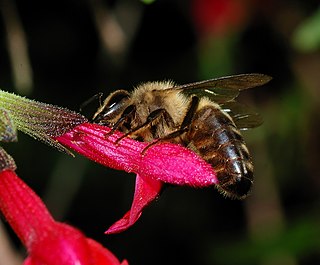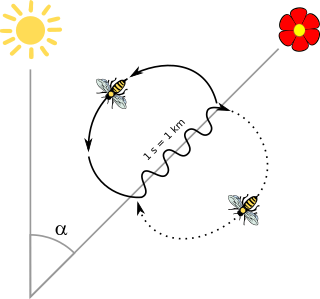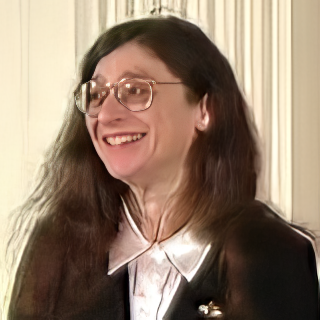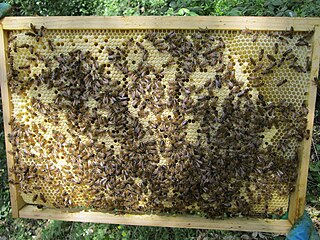Related Research Articles

Bees are winged insects closely related to wasps and ants, known for their roles in pollination and, in the case of the best-known bee species, the western honey bee, for producing honey. Bees are a monophyletic lineage within the superfamily Apoidea. They are currently considered a clade, called Anthophila. There are over 20,000 known species of bees in seven recognized biological families. Some species – including honey bees, bumblebees, and stingless bees – live socially in colonies while most species (>90%) – including mason bees, carpenter bees, leafcutter bees, and sweat bees – are solitary.

Berthold Karl HölldoblerBVO is a German zoologist, sociobiologist and evolutionary biologist who studies evolution and social organization in ants. He is the author of several books, including The Ants, for which he and his co-author, E. O. Wilson, received the Pulitzer Prize for non-fiction writing in 1991.

Myrmecology is a branch of entomology focusing on the scientific study of ants. Some early myrmecologists considered ant society as the ideal form of society and sought to find solutions to human problems by studying them. Ants continue to be a model of choice for the study of questions on the evolution of social systems because of their complex and varied forms of eusociality. Their diversity and prominence in ecosystems also has made them important components in the study of biodiversity and conservation. Recently, ant colonies are also studied and modeled for their relevance in machine learning, complex interactive networks, stochasticity of encounter and interaction networks, parallel computing, and other computing fields.

The European dark bee is a subspecies of the western honey bee, evolving in central Asia, with a proposed origin of the Tien Shan Mountains and later migrating into eastern and then northern Europe after the last ice age from 9,000BC onwards. Its original range included the southern Urals in Russia and stretched through northern Europe and down to the Pyrenees. They are one of the two members of the 'M' lineage of Apis mellifera, the other being in western China. Traditionally they were called the Black German Bee, although they are now considered endangered in Germany. However today they are more likely to be called after the geographic / political region in which they live such as the British Black Bee, the Native Irish Honey Bee, the Cornish Black Bee and the Nordic Brown Bee, even though they are all the same subspecies, with the word "native" often inserted by local beekeepers, even in places where the bee is an introduced foreign species. It was domesticated in Europe and hives were brought to North America in the colonial era in 1622 where they were referred to as the English Fly by the Native Americans.

Waggle dance is a term used in beekeeping and ethology for a particular figure-eight dance of the honey bee. By performing this dance, successful foragers can share information about the direction and distance to patches of flowers yielding nectar and pollen, to water sources, or to new nest-site locations with other members of the colony.

Haplodiploidy is a sex-determination system in which males develop from unfertilized eggs and are haploid, and females develop from fertilized eggs and are diploid. Haplodiploidy is sometimes called arrhenotoky.
Jeremy Field is a Professor of Evolutionary Biology at the University of Exeter. Prior to this, he was a senior lecturer in the Department of Biology at University College London between 1995 and 2007, and Professor of Evolutionary Biology at the University of Sussex from 2007 to 2016.

May Roberta Berenbaum is an American entomologist whose research focuses on the chemical interactions between herbivorous insects and their host plants, and the implications of these interactions on the organization of natural communities and the evolution of species. She is particularly interested in nectar, plant phytochemicals, honey and bees, and her research has important implications for beekeeping.
Task allocation and partitioning is the way that tasks are chosen, assigned, subdivided, and coordinated within a colony of social insects. Task allocation and partitioning gives rise to the division of labor often observed in social insect colonies, whereby individuals specialize on different tasks within the colony. Communication is closely related to the ability to allocate tasks among individuals within a group. This entry focuses exclusively on social insects. For information on human task allocation and partitioning, see division of labour, task analysis, and workflow.

The western honey bee or European honey bee is the most common of the 7–12 species of honey bees worldwide. The genus name Apis is Latin for "bee", and mellifera is the Latin for "honey-bearing" or "honey carrying", referring to the species' production of honey.
Laurent Keller is a Swiss evolutionary biologist, myrmecologist and author. He was a professor at the University of Lausanne from 1996 to 2023. In March 2023, the journal Science reported that sexual harassment allegations were leveled against Keller. According to the Science article, the University of Lausanne sent an email to staff in February of 2023 to inform them that Laurent Keller no longer works there.

Eusociality, the highest level of organization of sociality, is defined by the following characteristics: cooperative brood care, overlapping generations within a colony of adults, and a division of labor into reproductive and non-reproductive groups. The division of labor creates specialized behavioral groups within an animal society which are sometimes referred to as 'castes'. Eusociality is distinguished from all other social systems because individuals of at least one caste usually lose the ability to perform at least one behavior characteristic of individuals in another caste. Eusocial colonies can be viewed as superorganisms.
Gene Ezia Robinson is an American entomologist, Director of the Carl R. Woese Institute for Genomic Biology and National Academy of Sciences member. He pioneered the application of genomics to the study of social behavior and led the effort to sequence the honey bee genome. On February 10, 2009, his research was famously featured in an episode of The Colbert Report whose eponymous host referred to the honey Dr. Robinson sent him as "pharmaceutical-grade hive jive".

Worker policing is a behavior seen in colonies of social hymenopterans whereby worker females eat or remove eggs that have been laid by other workers rather than those laid by a queen. Worker policing ensures that the offspring of the queen will predominate in the group. In certain species of bees, ants and wasps, workers or the queen may also act aggressively towards fertile workers. Worker policing has been suggested as a form of coercion to promote the evolution of altruistic behavior in eusocial insect societies.
Marla Spivak is an American entomologist, and Distinguished McKnight University Professor at the University of Minnesota specializing in apiculture and social insects.

Thomas Dyer Seeley is the Horace White Professor in Biology in the Department of Neurobiology and Behavior at Cornell University. He is the author of several books on honeybee behavior, including Honeybee Democracy (2010) and The Wisdom of the Hive (1995) He was the recipient of the Humboldt Prize in Biology in 2001. He primarily studies swarm intelligence by investigating how bees collectively make decisions.

Adam Hart is an English scientist, author and broadcaster, specialising in ecology, entomology and conservation, especially in southern Africa. He has co-presented three BBC TV documentaries on social insects. Hart has written and presented numerous BBC Radio 4 and BBC World Service documentaries and written more than 120 scientific papers.

Mark L. Winston is a Canadian biologist and writer. A professor of apiculture and social insects at Simon Fraser University, he spent much of his career studying bees until becoming founding director of the university's Centre for Dialogue in 2006.
Christina Grozinger is an American entomologist, the Publius Vergilius Maro Professor of Entomology at Pennsylvania State University and the director at its Center for Pollinator Research.
Ellouise "Elli" Leadbeater is an ecologist and evolutionary biologist in the UK. In 2019 she was appointed Professor of Ecology and Evolution at Royal Holloway, University of London.
References
- ↑ University of Sussex bio, https://profiles.sussex.ac.uk/p128567-francis-ratnieks
- ↑ Biography from a page on a talk held by the Headstrong Club in Lewes, East Sussex, http://headstrongclub.co.uk/2018/01/11/francis-ratnieks-how-endangered-is-the-honey-bee-and-how-can-we-help-23-02-18/
- ↑ Laboratory of Apiculture and Social Insects page at the University of Sussex, https://www.sussex.ac.uk/lasi/